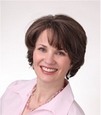September 13-17, 2010 was AD/HD (Attention Deficit Hyperactivity Disorder) Awareness Week. AD/HD is characterized by inattentiveness, impulsivity and sometimes, hyperactivity (the official name is AD/HD regardless of whether or not someone has the hyperactivity component). Although someone may have some or all of these traits, personal history, collaborative reports and testing are required to provide an official diagnosis. Whether you have AD/HD or live or work with someone who does, these tips offer information to help you understand how AD/HD affects people's organization skills. This is by no means a complete discussion of this complex disorder, but an overview that I hope will make it easier for all touched by AD/HD to create environments that will help the affected persons be their best.
AD/HD is a neurobiological difference in the brain that affects "executive function", the part of the brain that controls the processes of self- regulation (impulsivity), memory, focus, decision-making and planning. All of these skills are important in the organization process - either to set up an organizational system or to maintain it.
AD/HD in not just a childhood issue - it carries on into adulthood and can negatively impact relationships, including those at school or at work. After all, constantly being late, acting out in school, missing deadlines, etc. aren't very socially acceptable.
Here are a few of my favorite tips to overcome some of the organizing challenges faced by people with (or without) AD/HD:
Prioritize your to-dos by asking, "What's the most important thing I have to do today?" based on deadlines, financial impact, or other possible negative outcomes. Make a short list of today's priorities (five or fewer items) and put it where you'll see it.
To combat distraction and memory issues, write down whatever task you want to be working on at the moment, then set a timer (preferably one that automatically resets) for 10 minutes. When the timer goes off, make sure you're working on whatever you intended. If not, get back to it.
Use self-talk to remind yourself of what you intend to be doing so you can minimize your distractibility. For example, if you're hanging up your coat in the closet, say aloud, "I'm hanging my coat in the closet" over and over to keep yourself on course and prevent yourself from (or at least minimize the possibility of) doing other things once you've open the closet door.
Find ways to make seemingly mundane but necessary tasks interesting. Play familiar music, make a game of beating a timer, promise yourself a reward for finishing, work with a partner - something to break the tedium.
Minimize distractions - de-clutter your environment, turn off audible email notifications, turn off your phone when you have an important task to complete.
Learn how to categorize. Categorizing is an important organizing skill - it's needed to set up systems at home (e.g., where to put things in the kitchen) and at work (how to set up a filing system). When categorizing, think about how a library, store, or other relevant establishment has items organized. For example, the library has books in such categories as cooking, self-help, financial, etc. You can organize your own books and paperwork using similar categories.
Use colorful, fun labels to catch your eye and remind yourself of where things belong, as well as to remind yourself to put things away.
Take a photograph of your organized space (once you get it that way) and compare it to your actual living space to see if anything is out of place. If so, of course, put things back where they belong.
Ask for help - organizing is a learnable skill, but even with knowledge and good intentions, people with AD/HD often have challenges with follow-through. It can be helpful to have a supportive family member, co-worker, personal coach, or professional organizer who provides help setting up systems and strategies, and provides gentle reminders and accountability.
Thanks to CHADD and the NSGCD, as well as my fun and fabulous clients for teaching me so much about AD/HD.
Internationally known professional organizer, author, and speaker Sue Becker is the founder and owner of From Piles to Smiles®. She enjoys helping people from around the world live better lives by creating customized systems to overcome their overwhelming paperwork, clutter, and schedules. She specializes in helping people who are chronically disorganized - those for whom disorganization has been a lifelong struggle that negatively impacts every aspect of their life, especially people with AD/HD. Her hands-on help, as well as her presentations, have helped thousands of individuals create substantial change in their lives.
Sue is Illinois’ first Certified Professional Organizer in Chronic Disorganization. She co-authored the book Conversations on Success, and has appeared as an organizational expert on NBC News and the national TV show, Starting Over. A CPA, Sue has an MBA from Northwestern University’s Kellogg Graduate School of Management.

Post new comment
Please Register or Login to post new comment.